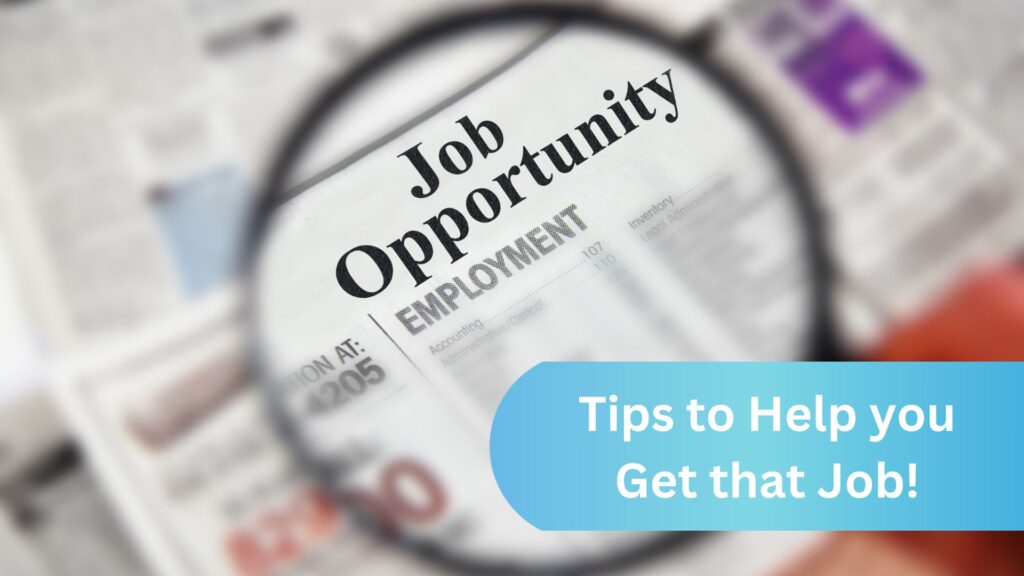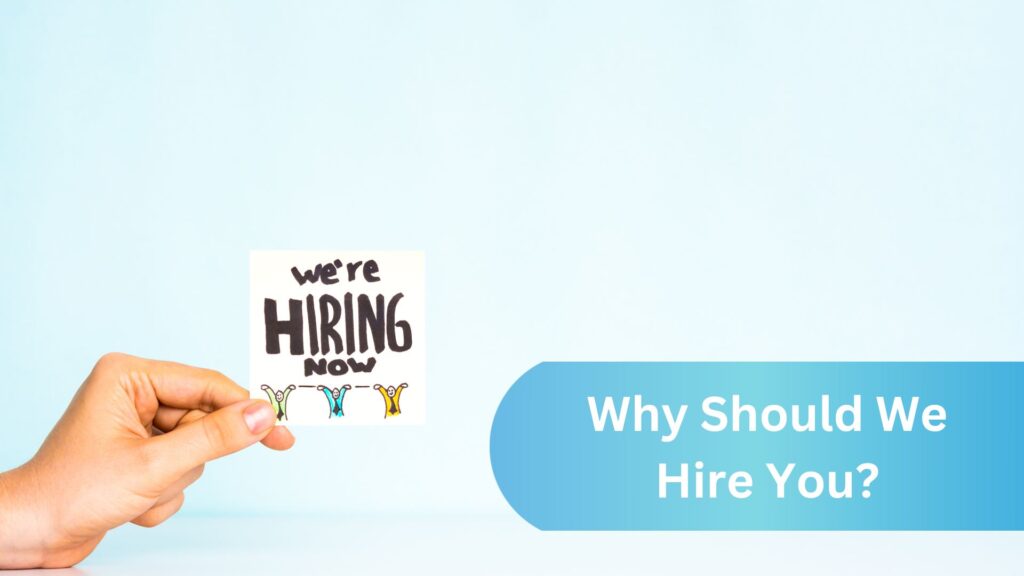That deceptively simple question is a hiring manager’s shortcut. It’s not just about checking a box — it’s about deciding whether you’ll move forward in the process. A strong answer accomplishes three things in 30–60 seconds:
-
Signals fit fast. Interviewers are juggling time and dozens of candidates. Your answer should immediately connect your background to the company’s top priorities so they don’t have to guess.
-
Provides evidence of impact. Saying you’re “hardworking” is noise. Showing a specific result (e.g., “I cut churn 12%”) proves you create value.
-
Reveals confidence and communication. Clear structure + calm delivery = someone who can represent the team externally and internally.
Hiring teams listen for three core signals in your response: Can you do this job? Will you do it reliably? Do you want to do it here? If your answer hits all three, you dramatically increase your odds of progressing.
What interviewers really want to hear?
When an interviewer asks this, they’re evaluating:
-
Fit: Do the skills you emphasize match the job’s highest-priority requirements?
-
Value: What unique or measurable wins will you likely replicate?
-
Cultural alignment: Do your motivations and working style match the team’s needs (fast-paced, detail-oriented, collaborative, etc.)?
-
Risk: Are you likely to stick around and perform, or are you a flight risk?
A good answer reduces perceived risk and increases perceived return on hire.
Step 1: How to really “Understand the Job Description”

Too many candidates skim the JD. Treat it like a map — here’s how to mine it for the three things you MUST prep:
-
Scan for repeated keywords — These are the role’s priorities (e.g., “project management,” “SQL,” “client-facing,” “growth”). Those repeated words = what you must mention.
-
Separate “required” vs “preferred” — Required = must show competence; preferred = opportunity to differentiate. Emphasize required items first.
-
Identify the top 3 outcomes they want — Look for language like “reduce churn,” “increase ARR,” “launch product,” or “improve throughput.” Those are the KPIs you should tie to your examples.
-
Decode culture signals — Words like “fast-paced,” “mission-driven,” “scrappy,” or “collaborative” tell you what tone to take and what soft skills to highlight.
-
Map each requirement to a past example — For each top requirement, pick one short story (PAR/STAR) — 1 sentence for context, 1 sentence for what you did, and 1 sentence with the quantifiable result.
-
Mirror language — Use the employer’s wording when you describe your skills — it signals alignment and helps resume+interview scoring systems (human and ATS).
Mini practical example:
Job asks for “project management, cross-functional leadership, on-time delivery.”
Your mapping:
-
PM → ran a 6-person sprint that delivered an app in 8 weeks (Action).
-
Cross-functional → coordinated designers + backend (Action).
-
On-time delivery → launched on schedule, adoption +20% (Result).
You now have 2–3 crisp bullets you can fold into “Why should we hire you?”
Quick answer template (60 seconds)
Use this fill-in-the-blank formula:
“You should hire me because [Top skill / role fit]. At [Previous employer or project], I [action] which resulted in [specific metric or outcome]. I’m excited about this role because [how it ties to the company’s goal], and I can help by [one clear way you’ll add value].”
Example:
“You should hire me because I deliver product features on time and on budget. At AppCo, I led a cross-functional team to ship a new onboarding flow that increased activation by 18% in two months. I’m excited about this role because your roadmap prioritizes activation, and I can help scale those improvements while mentoring junior PMs.”
Practice & delivery tips (don’t skip these)
-
Time it: Aim for 45–60 seconds. Practice until it’s natural, not rehearsed.
-
Record yourself: Watch tone, speed, and filler words.
-
Prepare 3 variants: short (30s), standard (45–60s), extended (90s with extra examples) so you can adapt live.
-
Anticipate follow-ups: Be ready to expand one of your examples with STAR details if asked.
-
Match energy: If the interviewer is energetic, lean in; if they’re calm, be measured.
✅ Example Answers by Experience Level
🎓 Entry-Level Applicant (Students or First-Time Job Seekers)
When you’re just starting out, employers know you might not have years of experience. Focus on your enthusiasm, transferable skills, and willingness to learn.
Example Answer:
“I recently graduated with a degree in Business Administration, where I developed strong communication and analytical skills. During my internship at ABC Corp, I helped streamline inventory tracking, improving efficiency by 15%. You should hire me because I’m eager to bring fresh ideas, strong organization, and a drive to learn quickly. I’m confident I can grow into this role and contribute to your team’s success.”
Tip:
Emphasize your energy and adaptability — traits that often outweigh limited experience for entry-level hires. Use examples from internships, school projects, or volunteer work that demonstrate initiative.
💼 Mid-Level Professional (3–8 Years of Experience)
For professionals with a few solid years of work experience, the goal is to show measurable impact and leadership qualities. Demonstrate that you not only perform but also help others perform better.
Example Answer:
“With over six years of customer service experience, I’ve consistently exceeded satisfaction goals by focusing on empathy and problem-solving. You should hire me because I can enhance your customer experience strategy while mentoring new team members. My track record of improving retention rates and client satisfaction aligns perfectly with your company’s focus on long-term customer relationships.”
Tip:
Quantify your achievements. Use metrics — such as “improved efficiency by 15%” or “reduced customer complaints by 20%” — to prove you’re results-driven.
Technical Role (e.g., IT, Engineering, Data, or Product Development)
For technical positions, hiring managers want confidence that you can deliver results while collaborating effectively with cross-functional teams. Highlight your mix of technical depth and teamwork.
Example Answer:
“I bring eight years of experience in software engineering and have successfully led teams to deliver high-performance solutions. You should hire me because I combine strong technical expertise with leadership skills to drive innovation and efficiency. At my last company, I reduced system downtime by 30% through proactive code optimization and automation. I’m excited to apply those same principles to strengthen your technology infrastructure.”
Tip:
Balance hard skills (languages, frameworks, tools) with soft skills (communication, leadership). Employers increasingly value engineers who can mentor, problem-solve, and innovate beyond just writing code.
Managerial or Leadership Roles
If you’re applying for a supervisory or leadership position, your answer should reflect your ability to drive results through others. Emphasize strategic thinking, coaching, and business impact.
Example Answer:
“Over the past 10 years, I’ve built and led diverse teams across sales and operations. You should hire me because I don’t just meet targets — I develop people who exceed them. In my last role, I introduced a coaching program that increased team performance by 25% while improving retention. I’m passionate about building high-performing teams that align with company goals.”
Tip:
Use strong, confident verbs like led, coached, implemented, and optimized. This language conveys authority and ownership — qualities employers look for in leaders.
Common Mistakes to Avoid

Even strong candidates stumble here. Avoid these pitfalls to keep your answer polished and persuasive:
❌ Being too vague: “Because I work hard” doesn’t say how you add value.
✅ Instead: Mention specific results or examples that prove your work ethic.
❌ Focusing only on personal gain: “I need a job” centers on you, not the company.
✅ Instead: Frame your motivation around contributing to their success.
❌ Repeating your resume word-for-word: The interviewer already read it.
✅ Instead: Use this as a storytelling opportunity that connects your skills to their goals.
❌ Lacking enthusiasm or confidence: Even great answers fall flat if delivered with low energy.
✅ Instead: Smile, maintain eye contact, and end on a confident note.
Conclusion
When answering “Why should we hire you?”, think of it as your personal pitch — your 60-second opportunity to sell your value.
The best answers are:
-
Clear – Focused on your most relevant skills.
-
Confident – Delivered with energy and conviction.
-
Customized – Tailored to the company’s specific needs.
By showing how your strengths align with the employer’s goals — and backing it up with proof — you’ll make a lasting impression that sets you apart from other candidates.
How WiseWorq Can Help
Before your next interview, take time to research the company’s culture and employee feedback. Understanding what current employees value helps you tailor your answers perfectly.
WiseWorq offers verified reviews and insights from over 26,000+ U.S. companies, including real data on career growth, management style, and work environment.
Use it to find out what employers truly look for — and choose workplaces that align with your goals and values.
👉 Explore company reviews and insights at WiseWorq.com


